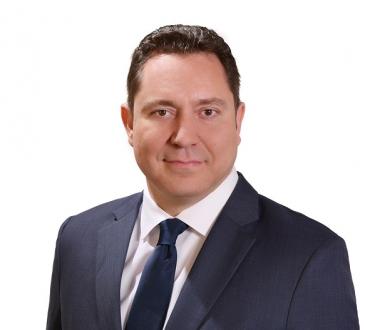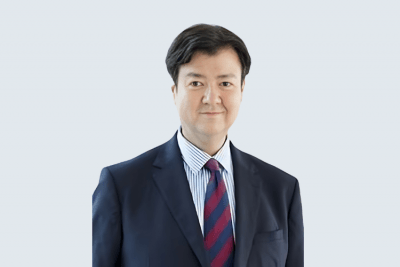Wealth Solutions & Wealth Planning
The Rich and Tax: Pressure is Rising Across the Globe so Robust and Pre-emptive Structuring is Vital

Jul 29, 2022
The Hubbis Asian Wealth Solutions event in Singapore on June 8 featured a lively discussion on tax and the rising pressure on disclosure and compliance for the well-to-do. The small panel of experts offered their views on tax, estate and asset planning that would provide private clients with robust structures for the near and much longer term. Zac Lucas, Partner for International Private Wealth at law firm Spencer West, was such expert and offered some valuable insights, which we have summarised here. He told delegates that it is quite likely that governments will seek more tax from the wealthy in Asia, he explained that older structures are often weak and need remediating, and he said that there is mounting evidence about what the tax inspectors will be looking for in terms of structures – especially in more exotic jurisdictions – and the associated patterns of behaviour.
Zac Lucas has been one of the tried and trusted legal experts Hubbis has often turned to in recent years for insights into wealth, estate and legacy planning and structures for private clients in Asia. Lucas is a private client partner with London-based international law firm Spencer West, which is in the process of expanding its presence in Singapore.
He had already made a lively and detailed presentation to our delegates at the Hubbis Asian Wealth Solutions event on June 8 in Singapore and brought his expertise to bear as both speaker and moderator on this last panel focusing on the implications of wealthy clients of fiscal and social pressures for higher taxation, especially in a world of more disclosure and information exchange.
By way of background, Lucas has over 20 years post qualification private client experience with various international law firms based in Europe, the Caribbean and in Asia.
Global expertise
He advises on all areas of international private client law, including cross-border tax, trust, estate, and succession planning. He has particular expertise advising business families on governance and succession planning and regularly acts as principal drafting and coordinating counsel for complex business family governance projects.
He has extensive experience in international private client regulatory laws, including the Common Reporting Standard, Mandatory Disclosure Rules, Economic Substance Rules and Beneficial Ownership Registers. And he also advises on the creation of international family offices, working closely with prominent multi-family offices, private banks, and trust companies to provide bespoke family office trust solutions.
Although as moderator and coordinator of this panel he to some extent limited his own observations, he nevertheless offered some of his own insights. He opened with an observation that there is no doubt mounting fiscal and indeed social pressure across the globe to tax the wealthy more robustly, and that this phenomenon is also gradually stirring under the surface in Asia, even in HNW and UHNW-friendly markets such as Singapore.
The times are changing
“We are seeing governments change in the region,” he remarked, “and as we emerge from the worst of the pandemic, we know that government finances have been under pressure to pay for pandemic relief and the economies slightly weakened by lockdowns and uncertainties.”
“The question now is really if, when and how they start targeting visible sources of wealth amongst the HNW and UHNW community in the region.”
He noted that many jurisdictions in Southeast Asia do not currently have the advantage of seeing the CRS data, for example the Philippines has not yet joined in, while Thailand has only just participated and will exchange from 2023.
Digging down
“What all this means is that those who have joined the regime will gradually get more of a glimpse into the real wealth out there, and things could change,” he reported. “Look at what is going on in South America, and we see an extremely aggressive approach to the use of CRS data to target high net worth, even down to the expropriation of assets. So, this can all get quite serious for families if the tax authorities are so minded. However, there are things we can do for clients pre-emptively to help them.”
He explained that in client discussions, there is increasing emphasis on pre-empting any changes. “Clients are aware that these major changes might happen and that it is better to act well in advance,” he said.
He said the authorities also realise this, and might even bring things forward, or impose retroactive tax when they announce any possible changes. As a result, there is far more focus now on pre-empting with trusts, stronger structures, remediating older structures and generally getting ahead of the risks ahead.
Pre-emptive measures
“The key element is for clients to understand the particular deficiencies they will typically have currently,” he explained. “They need to make existing plans and structures more robust, and pre-empt potential audits and disclosure deficiencies. And we need to assess if they are indeed audit ready and where the deficiencies lie.”
He said he still sees far too many instances of BVIs that are actually controlled out of Asia countries by clients. “I see corporate residency as being the Achilles heel for so many of these family structures, for example because they are not qualified tax resident in BVI, they are qualified tax resident at their home jurisdiction where they are actually meeting and doing things. Or the decisions and guidance are coming from emails, messages, or chats and show precisely where decisions are being made.”
Intimations of the future
He explained that his mission is therefore to advise clients clearly and openly on the typical areas in which they will fall down on a fairly standardised audit. “Well, we know that the OECD are training up a bunch of investigators on this because we see the statistics of the amount of countries that are sending their tax inspectors to be trained,” he told delegates. “So, we know what is coming, and we know they are not spending this money for nothing.”
He also observed that the tax surveillance will probe deep into all types of assets, some more so, some less so. “There are areas that the tax inspectors tend to stay somewhat away from,” he reported, “such as family businesses, because they realise that putting a tax on that would probably end up with the business having to do things, diverting funds away from economic activity, employment, and so forth, to the detriment of the local economy. In the worst cases, companies might implode under the pressure. And in Asia, we know that most of the wealth is still in the family business.”
He added that this in turn means potentially that the prospects of inheritance tax on these family businesses are also relatively low or there will be extremely high exemptions.
“But at the other end of the spectrum, we have red flag asset classes such as digital assets and cryptos that will definitely be in the inspectors’ crosshairs,” he stated.
Looking for the patterns
He drilled further down into the actions and behaviour of the OECD, noting that it is becoming clearer that they will be looking at trusts and their structuring and control, and all the underlying connections.
“To some extent they are almost telling us how the inspectors will go about their job of finding profile clients,” he said. “It does not specifically mean that you have a BVI company, so you are tax evading. It means that you are probably going to be audited to make sure you are not tax evading. And by the way, they are not focusing their attention on a trust company in Tokyo! They are looking at specific jurisdictions, specific asset classes and specific types of behaviour.”

Partner – International Private Wealth at Spencer West LLP

More from Zac Lucas, Spencer West LLP
Wealth Solutions & Wealth Planning
Business Families in Transition - Guiding Wealthy Families in the Passing of the Torch
Latest Articles






